LGBTQI+
LGBTQI+

Sex as Care and Other Viral Poems
In Neves Marques’ book, polyamorous encounters and the intimacy of queer lives run parallel to the history of modern science.
Pedro Neves Marques's first poetry collection includes two sets of poems written between 2017 and 2019 and spans the author's biographical geographies, from Brazil and Lisbon to London and New York. From precise geometries to tragicomic gestures and long free verse confessions, Neves Marques’s poetry moves with great honesty between deep social analyses to the tactile quality of remembrance. Whether in a long and devoted poem tying together friendship and historical legacies across the Atlantic in “Brazil” or in the condensed and timed recollections of “Thirteen Days in Lisbon,” the poems collected in "Sex as Care" acknowledge the reality of both care and violence in intimacy. For their part, "Other Viral Poems" takes a more programmatic approach, drawing an analogy between the spread of the Zika epidemic in Brazil, the genetic modification of its carrier mosquito, and the rise of fascism to mount a critique of both gender biases in science and anti-queer populisms. In orderly fashion, the poems coopt a militaristic and technical language to instead create spaces of intimacy where gender, love, trust, and unequal experiences are tested.
Pedro Neves Marques is a writer, visual artist, and filmmaker. Born in Lisbon, they have lived in London, São Paulo, and New York. They have read at e-flux, Poetry Project, The Vera List Center, McNally Jackson Bookstore, Nottingham Contemporary, Gasworks, and Sesc São Paulo, among many others. They have also published two short-story collections, most recently in Portuguese "Morrer na América” (Kunsthalle Lissabon/ Arranha-Céus) as well as in publications by e-flux journal, The Baffler, Verso, Haus der Kulturen der Welt, and MIT Press.
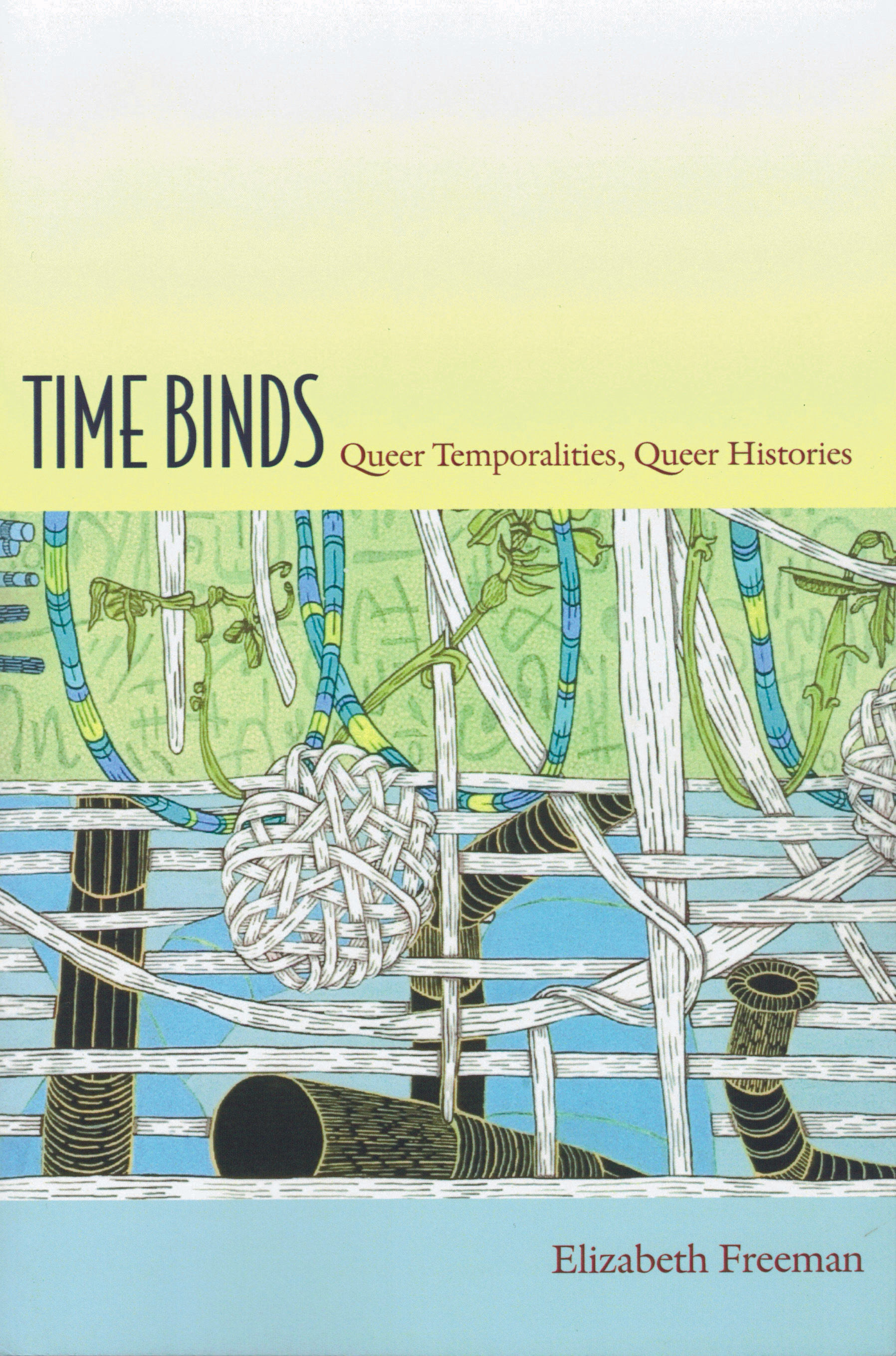
Time Binds - Queer Temporalities, Queer Histories
Time Binds is a powerful argument that temporal and sexual dissonance are intertwined, and that the writing of history can be both embodied and erotic. Challenging queer theory’s recent emphasis on loss and trauma, Elizabeth Freeman foregrounds bodily pleasure in the experience and representation of time as she interprets an eclectic archive of queer literature, film, video, and art. She examines work by visual artists who emerged in a commodified, “postfeminist,” and “postgay” world. Yet they do not fully accept the dissipation of political and critical power implied by the idea that various political and social battles have been won and are now consigned to the past. By privileging temporal gaps and narrative detours in their work, these artists suggest ways of putting the past into meaningful, transformative relation with the present. Such “queer asynchronies” provide opportunities for rethinking historical consciousness in erotic terms, thereby countering the methods of traditional and Marxist historiography. Central to Freeman’s argument are the concepts of chrononormativity, the use of time to organize individual human bodies toward maximum productivity; temporal drag, the visceral pull of the past on the supposedly revolutionary present; and erotohistoriography, the conscious use of the body as a channel for and means of understanding the past. Time Binds emphasizes the critique of temporality and history as crucial to queer politics.
Elizabeth Freeman is Associate Professor of English at the University of California, Davis. She is the author of The Wedding Complex: Forms of Belonging in Modern American Culture, also published by Duke University Press.

Close to The Knives
In Close to the Knives, David Wojnarowicz gives us an important and timely document: a collection of creative essays — a scathing, sexy, sublimely humorous and honest personal testimony to the "Fear of Diversity in America." From the author's violent childhood in suburbia to eventual homelessness on the streets and piers of New York City, to recognition as one of the most provocative artists of his generation — Close to the Knives is his powerful and iconoclastic memoir. Street life, drugs, art and nature, family, AIDS, politics, friendship and acceptance: Wojnarowicz challenges us to examine our lives — politically, socially, emotionally, and aesthetically.
David Wojnarowicz was an American painter, photographer, writer, filmmaker, performance artist, and AIDS activist prominent in the New York City art world. He was born on September 14, 1954. He died of AIDS on July 22, 1992.
published 1991
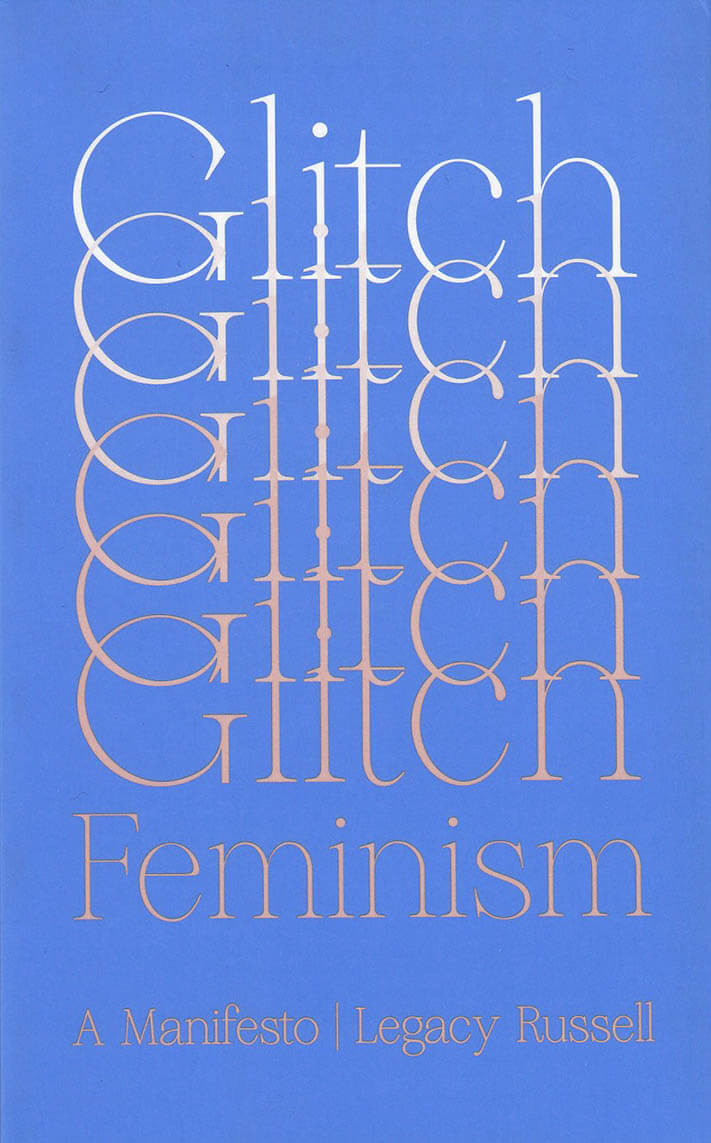
Glitch Feminism
A new manifesto for cyberfeminism.
The divide between the digital and the real world no longer exists: we are connected all the time. What must we do to work out who we are, and where we belong? How do we find the space to grow, unite and confront the systems of oppression? This conflict can be found in the fissures between the body, gender and identity. Too often, the glitch is considered a mistake, a faulty overlaying, a bug in the system; in contrast, Russell compels us to find liberation here. In a radical call to arms, Legacy Russell argues that we need to embrace the glitch in order to break down the binaries and limitations that define gender, race, sexuality.
Glitch Feminism is a vital new chapter in cyberfeminism, one that explores the relationship between gender, technology and identity. In an urgent manifesto, Russell reveals the many ways that the glitch performs and transforms: how it refuses, throws shade, ghosts, encrypt, mobilises and survives. Developing the argument through memoir, art and critical theory, Russell also looks at the work of contemporary artists who travel through the glitch in their work. Timely and provocative, Glitch Feminism shows how an error can be a revolution.
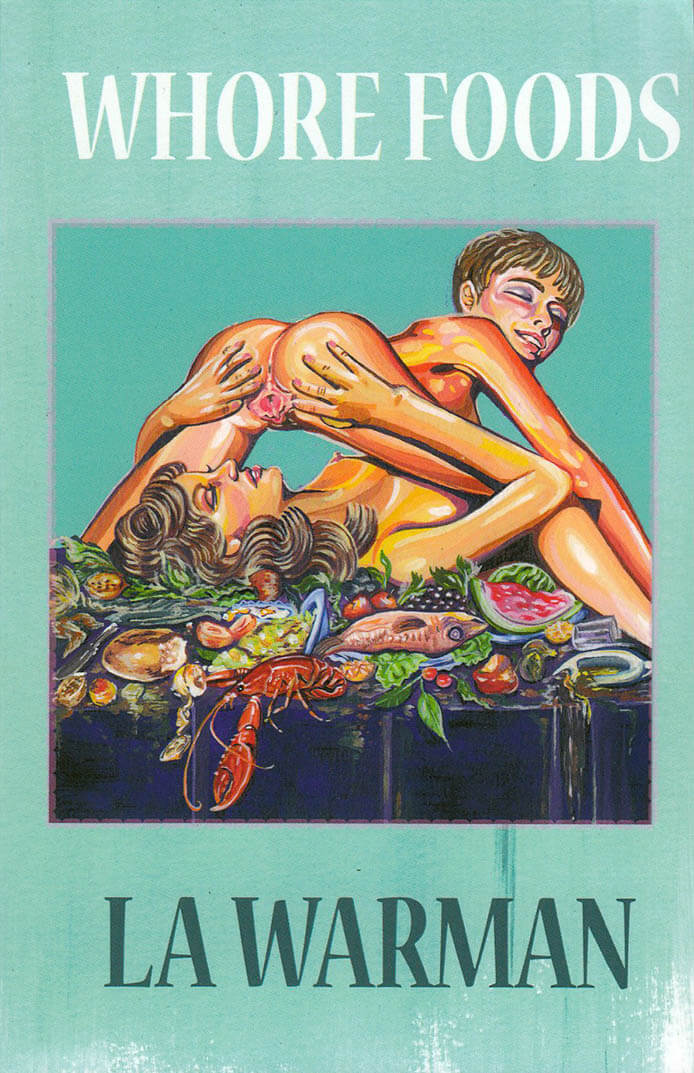
Whore Foods
Collecting and expanding pieces from her seminal newsletter detailing the inner and outer sexual life of a grocery store cashier, LA WARMAN'S WHORE FOODS is a guaranteed feast for sore thighs. Now available in raw pulp paperback form for the first time. Cleanup in Aisle 4.
"She made fun of the construction workers for not being white, for not knowing time like she knows time and I can’t say “That’s racist” because I am on the job. I am getting paid not to speak. I am getting paid to open up my body to you but not reveal it. The way I put my eyes down when you fight with your husband in line. To shit my pants only a little so you can’t see. The smell of watercress, pineapple, rice, and shit. She’s in my line again asking me if I eat ass.
Yes, sometimes.
Saw a good ass, saw a real good ass."
LA Warman is a poet and performer. She is the founder of GLASS PRESS, a publisher of art and poetry on flash drives. Warman has had work in shows at MOCA Cleveland, ICA Philadelphia, Time-Based Art Festival, General Public Collective, Flying Object, A.T.M. Gallery, and Open Engagement. Her chapbooks How to Become a Lesbian and THE CAVE THE CHURCH THE BEDROOM THE MALL were published by Inpatient Press and After Hours Ltd. Warman wrote and directed a 12 hour text and movement performance piece, Break, that premiered at Deli Gallery in 2018. She teaches Erotica classes online at LAWarman.com and in Brooklyn.
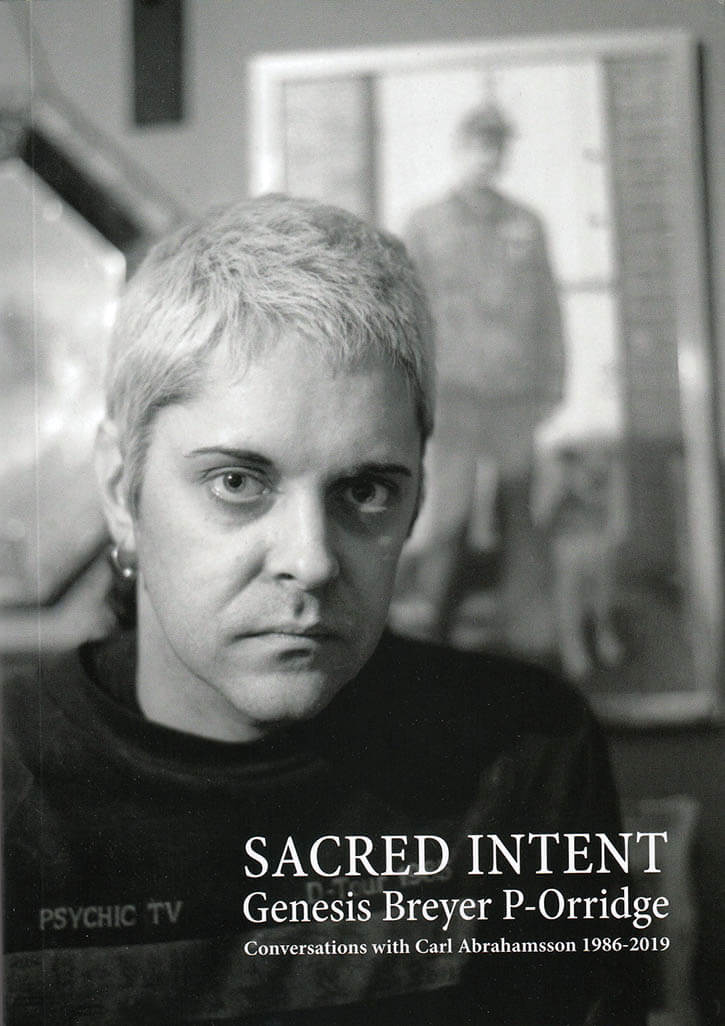
Sacred Intend
Published for legendary artist and musician Genesis Breyer P-Orridge’s 70th birthday in 2020, Sacred Intent gathers conversations between Breyer P-Orridge and his friend and collaborator, the Swedish author Carl Abrahamsson. From the first 1986 fanzine-based interview about current projects, philosophical insights, magical workings, international travels, art theory and gender revolutions, to 2019’s thoughts on life and death in the the shadow of battling leukaemia, Sacred Intent is a unique journey in which the art of conversation blooms to the highest degree.
With (in)famous projects like COUM Transmissions, Throbbing Gristle, Psychic TV, Thee Temple Ov Psychick Youth (TOPY) and Pandrogeny, Breyer P-Orridge has consistently thwarted preconceived ideas and transformed disciplines such as performance art, music, collage, poetry and social criticism, always cutting up the building blocks to dismantle control structures and authority. But underneath P-Orridge’s socially conscious and pathologically rebellious spirit, there has always been a devout respect for a holistic, spiritual, magical worldview―one of “sacred intent.”
Sacred Intent is a must read for anyone interested in contemporary art, deconstructed identity, gender evolution, magical philosophy and the responsibility artists may carry and contain within their work. The book not only celebrates an intimately deep friendship spanning over four decades, but also the work and ideas of an artist who has never ceased to amaze and provoke the status quo.
Also included are photographic portraits of Breyer P-Orridge taken by Carl Abrahamsson.
Published 2020.
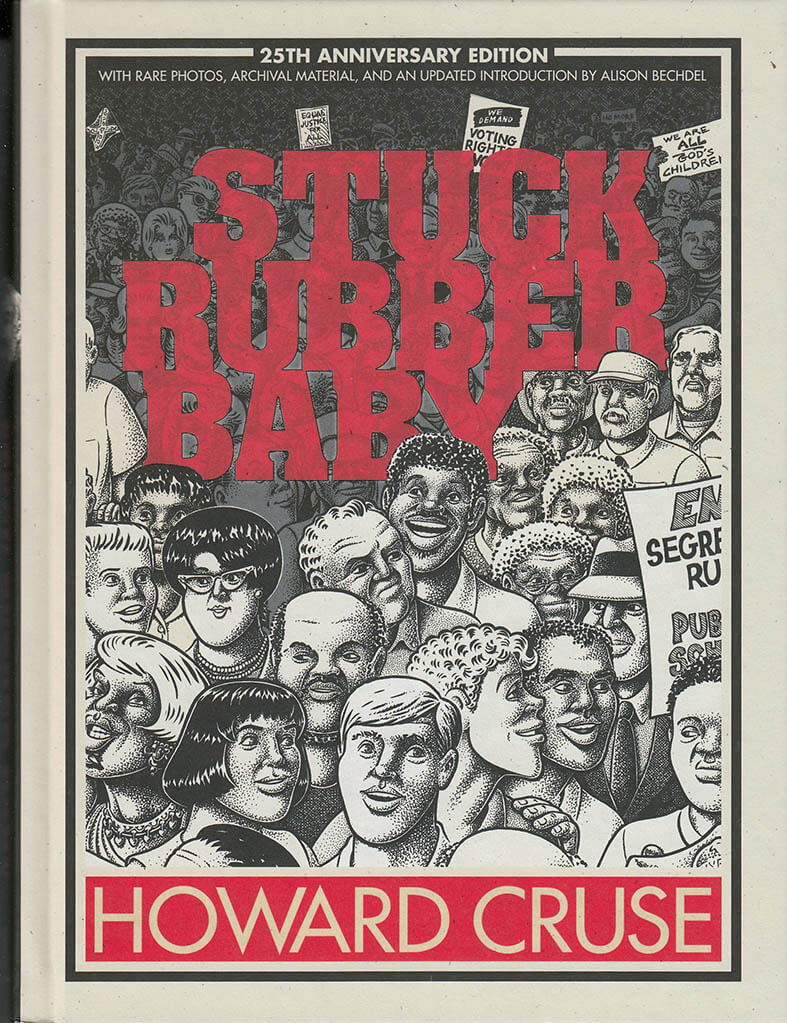
Stuck Rubber Baby
As a young gay man leading a closeted life in the 1960s American South, Toland Polk tries his best to keep a low profile, until he finds himself unexpectedly drawn to a lively community of civil rights activists, folk singers, and night club performers. Emboldened by his new friends, he joins local protests and even finds the courage to venture into a gay bar. No longer content to stay on the sidelines, Toland takes a stand against bigotry. But in Clayfield, Alabama, that can be dangerous—even deadly. Painstakingly researched and exquisitely illustrated, Stuck Rubber Baby is a groundbreaking graphic novel that draws on Howard Cruse's experience coming of age and coming out in 1960s Birmingham, Alabama. Just in time for its 25th anniversary, this rich and moving tale of identity and resistance is back in print—complete with unpublished archival material and a behind-the-scenes look at the author's creative process.
Howard Cruse's career as an underground cartoonist was launched during the 1970s, and in 1980 he served as the founding editor of the groundbreaking Gay Comix series. His comic strip Wendel was serialized in the Advocate through much of the 1980s. Stuck Rubber Baby, his most widely known work, was the winner of Eisner and Harvey Awards in the U.S. and (in translation) a Comics Critics Award in Spain, a Luchs Award in Germany, and a Prix de la critique at the International Comics Festival in Angoulême, France.
Published 2020.

a queer anthology of healing
a queer anthology of healing is a subtle, devastating mix of cuteness and embarrassment, beauty and confession, magic tricks and pain. The artworks and writings in this collection suggest that healing can be achieved through revelation, invocation, observation and disclosure. It’s a much-needed gift right now. - Chris Kraus
with Clay AD, Harry Agius, Barney Ashton-Bullock, Bodie Bellamy, Jack Bigglestone, Nick Blackburn, Helen Cammock, Charity Coleman, Swithun Cooper, Paul Gabrielli, Evan Garza, Erica Gillingham, Daniel Givens, Pete Hammond, Benedict Hawkins, Georgie Henley, Lubaina Himid, Fanny Howe, Jasmine Johnson, G.B. Jones, Kevin Killian, Wayne Koestenbaum Nic Lachance Olivia Laing, Benedict Leader, Paul Lee, Mary Manning, Ben Miller, D. Mortimer, Monique Mouton, Annie Murrells, Chuck Nanney, David Nas, Isobel Neviazsky,Paul P. , Richard Porter,Peter Scalpello, Hyacinth Schuss, Ryan Skelton, Verity Spott, Edward Thomasson, Timothy Thornton, Declan Wiffen, Ian Wooldridge

Lez Talk: a collection of black lesbian short fiction
S. Andrea Allen, Lauren Cherelle
A necessary and relevant addition to the Black LGBTQ literary canon, which oftentimes overlooks Black lesbian writing, Lez Talk is a collection of short stories that embraces the fullness of Black lesbian experiences. The contributors operate under the assumption that "lesbian" is not a dirty word, and have written stories that amplify the diversity of Black lesbian lives.
At once provocative, emotional, adventurous, and celebratory, Lez Talk crosses a range of fictional genres, including romance, speculative, and humor. The writers explore new subjects and aspects of their experiences, and affirm their gifts as writers and lesbian women. Beginning with Sheree L. Greer's "I Can't Turn it Off," a short, powerful tale imbued with socio-political undercurrents, the collection also includes work from Claudia Moss, LaToya Hankins, Lauren Cherelle, K.A. Smith, S. Andrea Allen, Faith Mosley, and Eternity Philops.

Girls, Visions and Everything
It's summer in New York City and the streets are sizzling. Below 14th Street the girls at the Kitsch-Inn are hard at work on their new lesbian version of A StreetCar Named Desire. As the temperature rises, lesbian-at-large Lila Futuransky is looking for adventure, with her keys in her pocket and a copy of On The Road in her hand.
A fast-paced, spirited romp through politics and sexuality, Girls, Visions and Everything offers a funny, affectionate portrait of a group of struggling young artists trying to find meaning in their changing world.
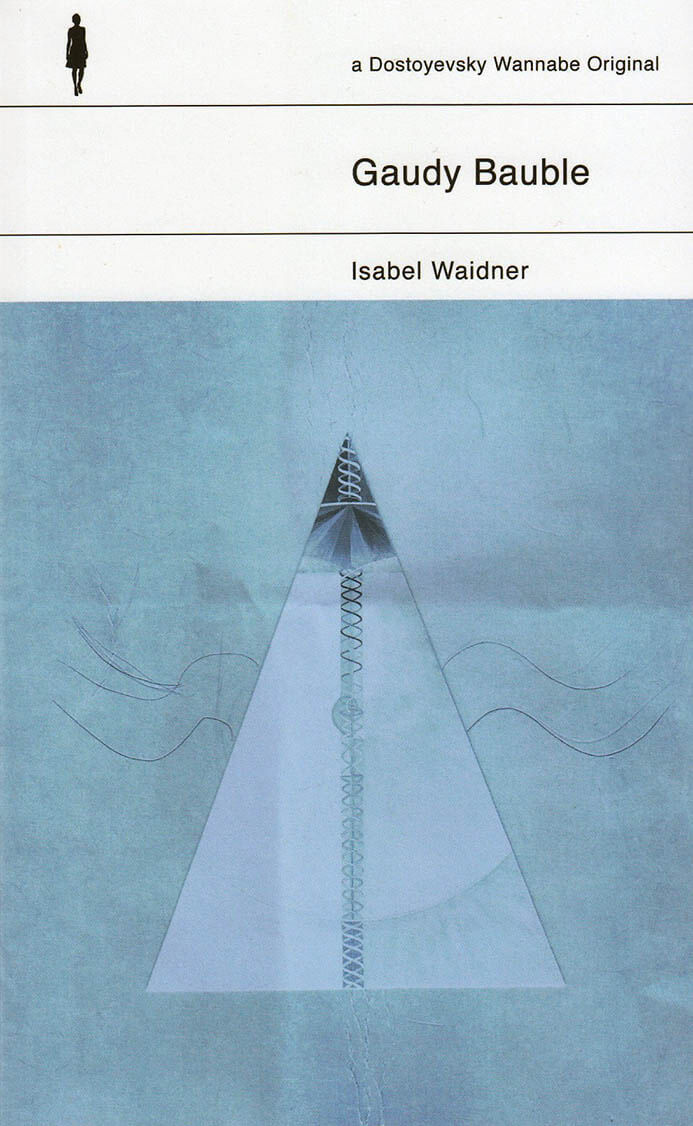
Gauby Bauble
Gaudy Bauble stages a glittering world populated by GoldSeXUal StatuEttes, anti-drag kings, Gilbert-&-George-like lesbians, maverick detectives, a transgender army equipped with question-mark-shaped helmets, and birds who have dyke written all over them. Everyone interferes with the plot. No one is in control of the plot. Surprises happen as a matter of course: A faux research process produces actual results. Hundreds of lipstick marks reanimate a dying body. And the Deadwood-to-Dynamo Audience Prize goes to whoever turns deadestwood into dynamost.
Gaudy Bauble stages what happens when the disenfranchised are calling the shots. Riff-raff are running the show and they are making a difference.
"I'm besotted with this beguiling, hilarious, rollocking, language-metamorphosing novel. The future of the queer avant-garde is safe with Isabel Waidner." - Olivia Laing
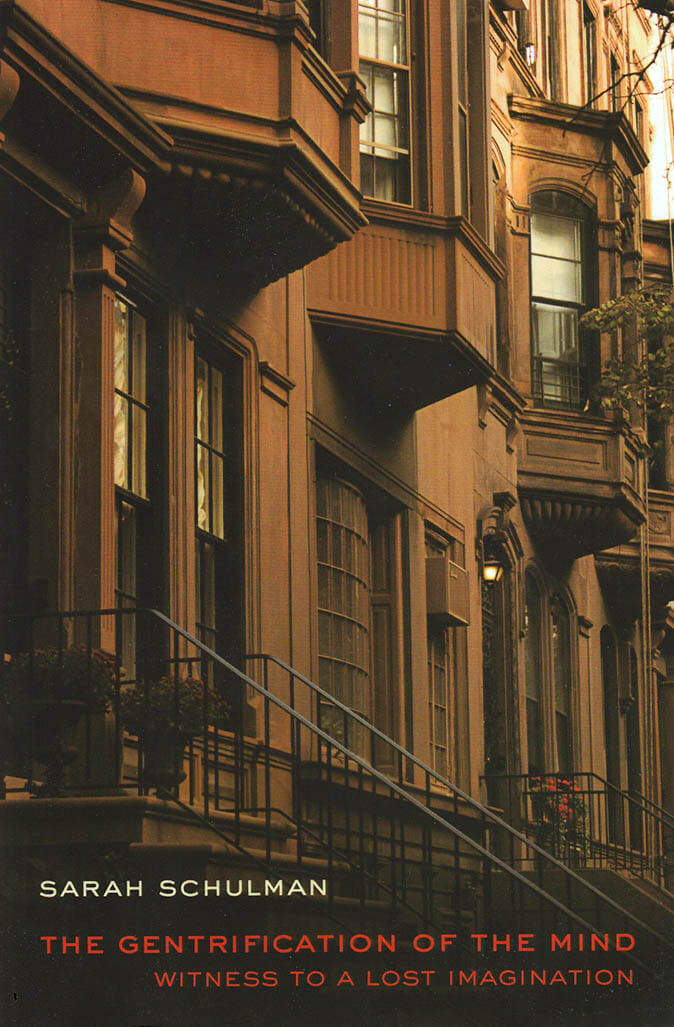
University of California Press
The Gentrification of The Mind
In this gripping memoir of the AIDS years (1981–1996), Sarah Schulman recalls how much of the rebellious queer culture, cheap rents, and a vibrant downtown arts movement vanished almost overnight to be replaced by gay conservative spokespeople and mainstream consumerism.
Schulman takes us back to her Lower East Side and brings it to life, filling these pages with vivid memories of her avant-garde queer friends and dramatically recreating the early years of the AIDS crisis as experienced by a political insider. Interweaving personal reminiscence with cogent analysis, Schulman details her experience as a witness to the loss of a generation’s imagination and the consequences of that loss.
Published 2012

Vernon Subutex 1
From the provocative writer and filmmaker Virginie Despentes comes volume one of her acclaimed trilogy of novels, Vernon Subutex—short-listed for the Man Booker International Prize. But who is Vernon Subutex?
Vernon Subutex was once the proprietor of Revolver, an infamous music shop in Paris, where his name was legend throughout Paris. By the 2000s, however, with the arrival of the internet and the decline in CD and vinyl sales, his shop is struggling, like so many others. When it closes, Subutex finds himself with nowhere to go and nothing to do. Before long, his savings are gone, and when the mysterious rock star who had been covering his rent suddenly drops dead of a drug overdose, Subutex finds himself launched on an epic saga of couch-surfing, boozing, and coke-snorting before finally winding up homeless. Just as he resigns himself to life as a panhandler, a throwaway comment he once made on Facebook takes the internet by storm.
The word is out: Subutex is lugging around a bunch of VHS tapes shot by that same dead rock musician—his last recordings on this earth. Soon a crowd of wild characters, from screen writers to social media groupies, from porn stars to failed musicians to random misfits, are hot on Vernon's trail . . . but Vernon is none the wiser.
Virginie Despentes is a writer and filmmaker. She worked in an independent record store in the early '90s, was a sex worker, and published her first novel, Baise Moi, when she was twenty-three. She adapted the novel for the screen in 2000, codirecting with the porn star Coralie Trinh Thi. Upon release, it became the first film to be banned in France in twenty-eight years. Despentes is the author of more than fifteen other works, including Apocalypse Baby, Bye Bye Blondie, Pretty Things, and the essay collection King Kong Theory.
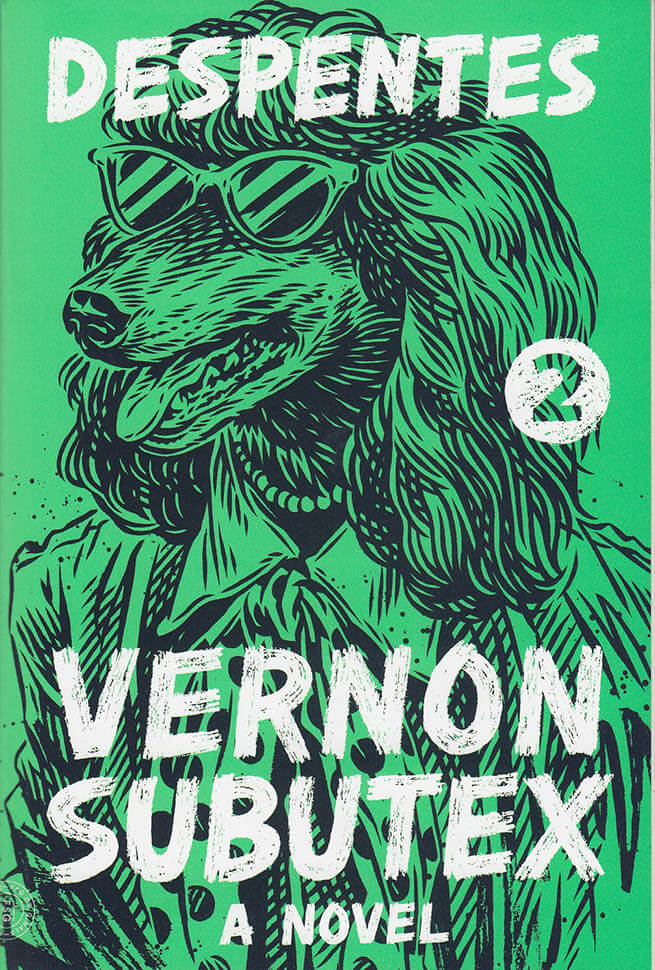
Vernon Subutex 2
Part social epic, part punk-rock thriller, writer/filmmaker Virginie Despentes's Vernon Subutex trilogy continues the Man Booker International Prize shortlisted sprawling tale of an ex-record shop clerk's celebrity fortunes and misfortunes. Rock star Alex Bleach might be dead, but he has a secret. It's a secret that concerns several people, but the only person who can unlock it is Vernon Subutex, former record shop proprietor turned homeless messiah and guru, last seen hallucinating and feverish on a bench. He has tapes of Alex that will shake the world. The hunt is on, and the wolves are closing in.
Meanwhile, the cast of lovers and killers in Vernon's orbit is in violent disarray. Aïcha wants to know the truth behind the death of her mother, the porn star Vodka Satana. And if she finds the bastards responsible, she wants to make them pay, whatever Céleste thinks of her plan. Céleste wants Aïcha to get a grip and stop hanging around with Subutex's gang of disciples. The Hyena wants to find the Bleach tapes. She wants to untangle her complicated feelings about Anaïs, her boss's assistant. And speaking of her boss, she does not want Laurent Dopalet to discover how badly she has double-crossed him.
Big-shot producer Laurent Dopalet wants the Hyena to find and destroy the Bleach tapes. He wants to forget he ever knew Vodka Satana. He wants people to stop graffitiing his apartment with ludicrous allegations. Above all, he wants people to understand: NONE OF THIS IS HIS FAULT.
"Virginie Despentes's Vernon Subutex trilogy is the zeitgeistiest thing I ever read . . . [It] has dupes and assholes and racists and the people they hate and a stunning diversity of internal monologues and trans true love. Like the last decade, it searches for a happy ending that isn't merely personal and can't find it . . . These novels with their depth and detail kick TV's sorry ass." Nell Zink
Virginie Despentes is a writer and filmmaker. She worked in an independent record store in the early '90s, was a sex worker, and published her first novel, Baise Moi, when she was twenty-three. She adapted the novel for the screen in 2000, codirecting with the porn star Coralie Trinh Thi. Upon release, it became the first film to be banned in France in twenty-eight years. Despentes is the author of more than fifteen other works, including Apocalypse Baby, Bye Bye Blondie, Pretty Things, and the essay collection King Kong Theory.
Translated from french by: Frank Wynne
Published July 2020

People I've met from the Internet
Stephen van Dyck's PEOPLE I'VE MET FROM THE INTERNET is a queer reimagining of the coming-of-age narrative set at the dawn of the internet era. In 1997, AOL is first entering suburban homes just as thirteen-year-old Stephen is coming into his sexuality, constructing selves and cruising in the fantasyscape of the internet. Through strange, intimate, and sometimes perilous physical encounters with the hundreds of men he finds there, Stephen explores the pleasures and pains of growing up, contends with his mother's homophobia and early death, and ultimately searches for a way of being in the world.
Spanning twelve years, the book takes the form of a very long annotated list, tracking Stephen's journey and the men he meets from adolescence in New Mexico to post-recession adulthood in Los Angeles, creating a multi-dimensional panorama of gay men's lives as he searches for glimpses of utopia in the available world.
Published 2019.
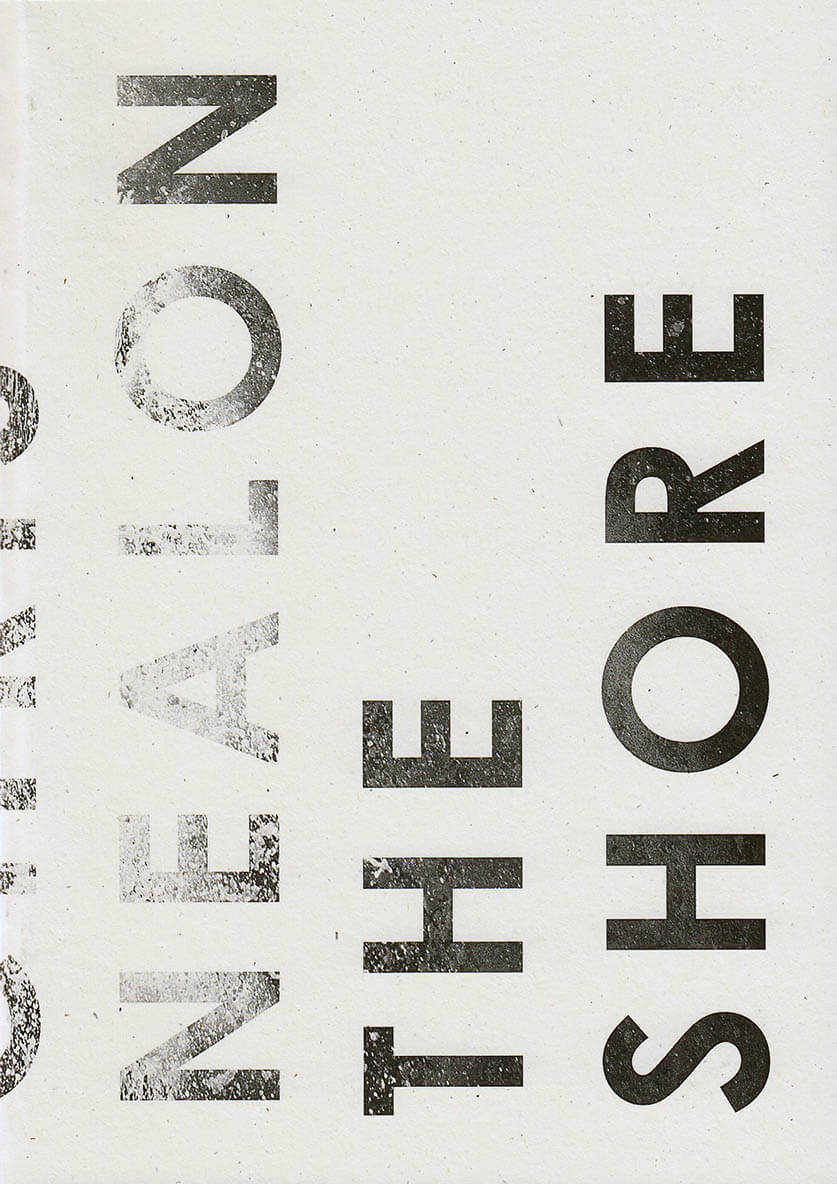
The Shore
The five poem-essays of Chris Nealon's The Shore give space and voice to the complexity of contemporary life, admitting bafflement and dismay but also creating openings for indiscreet hope. Queer and anti-capitalist, they urge us not to be ruled by our fears, while always ethically navigating the forces—race, class, age, gender, and others—that put us each in different places of power. Nimbly exploring connections among beauty, friendship, and politics, The Shore gives our era of crisis a language at once vernacular and philosophical, in a form that's both teeming and fluid.
Chris Nealon is Professor of English at Johns Hopkins University. He is the author of The Shore (Wave Books, 2020) as well as two books of literary criticism, Foundlings: Lesbian and Gay Historical Emotion before Stonewall (Duke, 2001) and The Matter of Capital: Poetry and Crisis in The American Century (Harvard, 2011), as well as three earlier books of poetry: The Joyous Age (Black Square Editions, 2004), Plummet (Edge Books, 2009), and Heteronomy (Edge, 2014). He lives in Washington, DC.
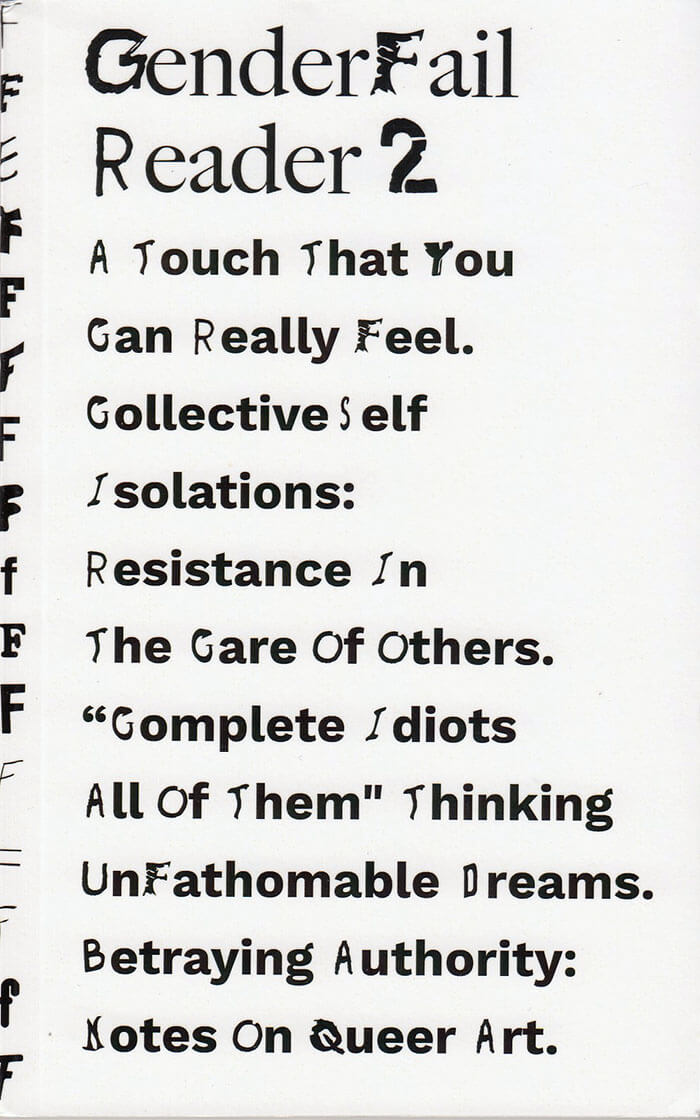
GF Reader 2
GenderFail Reader 2 is a compilation of four brand new essays written during the pandemic including Small Publishing and Finding Ways to Live, A Touch that You Can Really Feel, Collective Self Isolations: Resistance in the Care of Others and the Violence of Naming. This second printing also has a new essay “Complete Idiots All of Them: Thinking UnFathomable Dreams.
This reader also includes three new poems, Being an Instrument, Douche and Making Friends at 30, by my partner Noah LeBien, who as become such an important collaborator through my work with GenderFail. Noah also expanded their essay, Betraying Authority: Notes on Queer Art that was previously published as a zine.”
Be Oakley, (formally known as Brett Suemnicht) Born 1991 in Clearwater, Florida; is an writer, facilitator and publisher based in Brooklyn, NY. Oakley's projects looks to what Fred Moten calls "the politics of the mess" by framing their identity as a white non-binary queer person in its intersections with failure and internationality. In 2015 they started GenderFail, a publishing and programming initiative that seeks to encourage projects that foster an intersectional queer subjectivity. Their work has been shown in programs and exhibitions at MoMA PS1 (NYC), the Studio Museum of Harlem, The International Center of Photography (NYC), Vox Populi and Sediment Arts. Their publications can be found in the library collections of The Museum of Modern Art, The Whitney Museum, The Met Museum, The Center for Book Arts and many others.
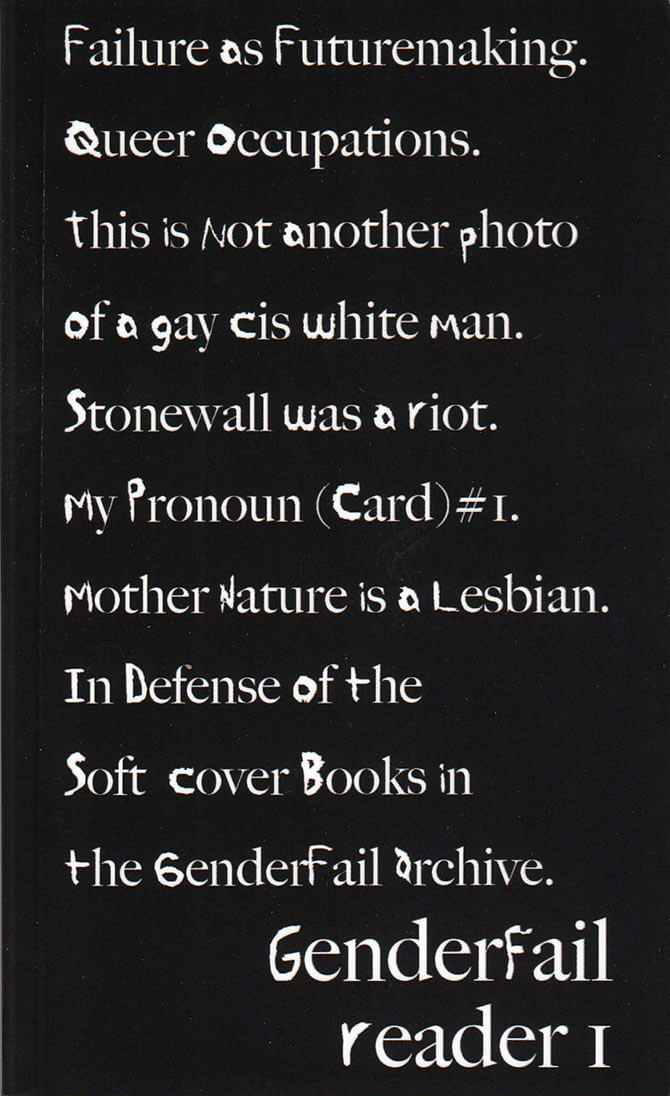
GF Reader 1
GF Reader 1 is a complication of six essays by GenderFail founder Be Oakley complied together for the first time. This publication features previous released essays from GF titles including Stonewall was a Riot, This is not another photo of a cis gay white men, My Pronoun (Card) #1 and In Defense of the Softcover Books in the GenderFail Archive. The GF Reader also includes Failure as Futuremaking, a new manifesto written in collaboration with artist Noah LeBien.
Be Oakley, (formally known as Brett Suemnicht) Born 1991 in Clearwater, Florida; is an writer, facilitator and publisher based in Brooklyn, NY. Oakley's projects looks to what Fred Moten calls "the politics of the mess" by framing their identity as a white non-binary queer person in its intersections with failure and internationality. In 2015 they started GenderFail, a publishing and programming initiative that seeks to encourage projects that foster an intersectional queer subjectivity. Their work has been shown in programs and exhibitions at MoMA PS1 (NYC), the Studio Museum of Harlem, The International Center of Photography (NYC), Vox Populi and Sediment Arts. Their publications can be found in the library collections of The Museum of Modern Art, The Whitney Museum, The Met Museum, The Center for Book Arts and many others.
Edition of 100.
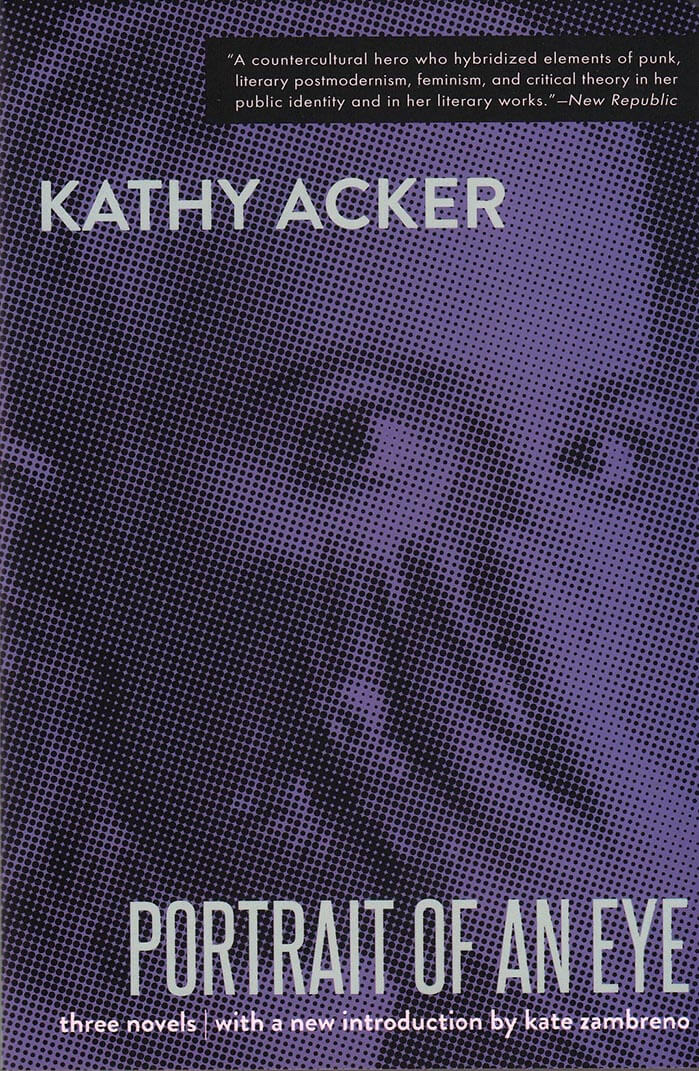
Portrait of an Eye
Three early, self-published novels from Kathy Acker reissued with an original introduction by Kate Zambreno, the author of Heroines, Green Girl, Screen Tests, and more.
The Childlike Life of the Black Tarantula, Kathy Acker's debut and the first in this three-novel collection, began as an episodic handmade pamphlet that Acker mailed out to influential writers and artists whose addresses she managed to get her hands on. In the novel, Acker steps into the biography of a Mississippi murderess who falls in love with a famous lawyer, and mixes in fragments from porn, historical romance, pulp fictions, and The Story of O. Collect with her second novel, the dreamy exploration of desire I Dreamt I was a Nymphomaniac, and her third, The Adult Life of Toulouse Lautrec, Portrait of an Eye is dive into the frenzy of sexual wanting, the search for identity, and the invention of a new literary language.
Now with an introduction by Kate Zambreno contextualizing the resurrection of these three early Acker novels, this new edition of Portrait of an Eye reminds us of all there is still to learn from Kathy Acker, a writer and artist whose work "remains radical and uncanny, entirely inimitable, a smash and grab on the history of literature" (Guardian).

Empire of the Senseless
Originally published in 1988, Empire of the Senseless marked a turning point in Acker's wild, inimitable style. Considered one of her more accessible works, here Acker candidly addresses her lifelong obsessions: childhood and trauma, language and sexuality, criminality and corruption, oppression and rebellion.
Abhor (part human, part robot) and her lover Thivai (a pirate) traverse Paris in a dystopian future, in search of a mysterious drug that Thivai needs in order to maintain his ability to love. Navigating the chaotic city, they encounter mad doctors, prisoners, bikers, sailors, tattooists, terrorists, and prostitutes, while a band of Algerian revolutionaries take over, and the C.I.A. plots to thwart them all.
Sexually explicit, graphically violent, Empire of the Senseless resists the desensitizing of cultural consciousness and the disintegration of interpersonal communication. A timeless, prescient parable, it speaks profoundly to our social and political history as well as our present reality.
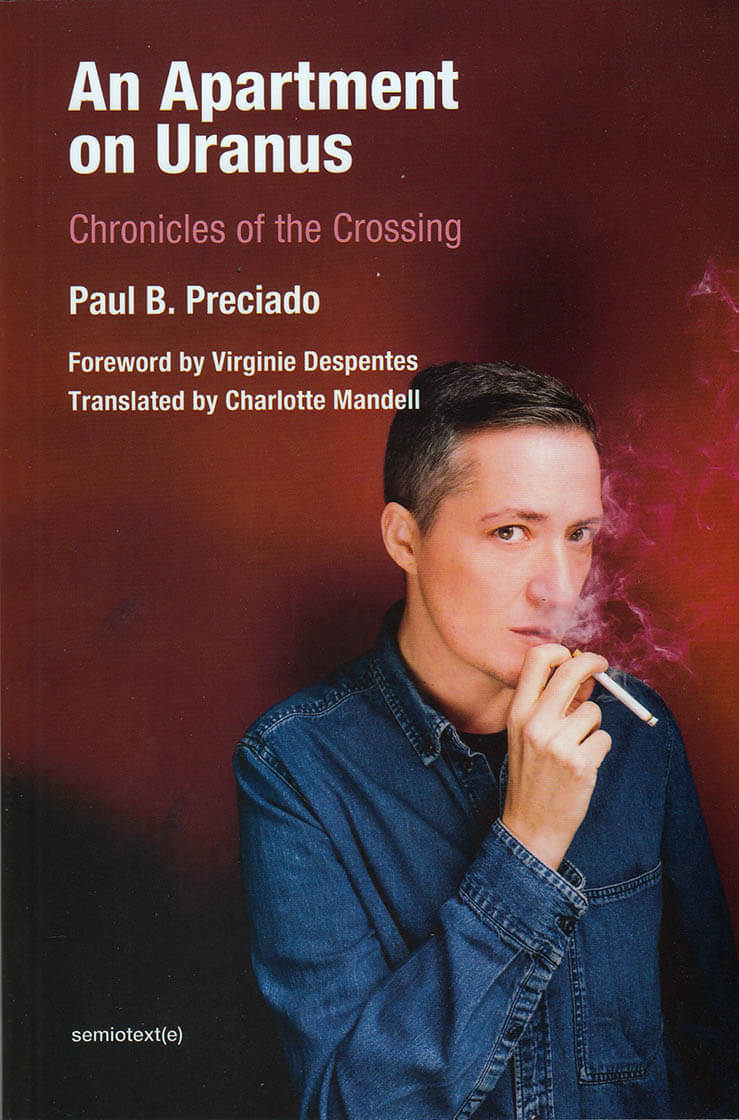
An Apartment on Uranus
A “dissident of the gender-sex binary system” reflects on gender transitioning and political and cultural transitions in technoscientific capitalism.
Uranus, the frozen giant, is the coldest planet in the solar system as well as a deity in Greek mythology. It is also the inspiration for uranism, a concept coined by the writer Karl Heinrich Ulrich in 1864 to define the “third sex” and the rights of those who “love differently.” Following Ulrich, Paul B. Preciado dreams of an apartment on Uranus where he might live beyond existing power, gender and racial strictures invented by modernity. “My trans condition is a new form of uranism,” he writes. “I am not a man. I am not a woman. I am not heterosexual. I am not homosexual. I am not bisexual. I am a dissident of the gender-sex binary system. I am the multiplicity of the cosmos trapped in a binary political and epistemological system, shouting in front of you. I am a uranist confined inside the limits of technoscientific capitalism.”
This book recounts Preciado's transformation from Beatriz into Paul B., but it is not only an account of gender transitioning. Preciado also considers political, cultural, and sexual transition, reflecting on issues that range from the rise of neo-fascism in Europe to the technological appropriation of the uterus, from the harassment of trans children to the role museums might play in the cultural revolution to come.

Chronology
Taking as its starting point an ultimately failed attempt to translate a Sesotho short story into English, Chronology explores the spaces language occupies in relationships, colonial history, and the postcolonial present. It is a collage of images and documents, folding on words-that-follow-no-chronology, unveiling layers of meaning of queering love, friendship, death, and power. Traveling from Cape Town to the Schomburg Center in New York, Zahra Patterson’s Chronology reveals and revels in fragments of the past-personal and the present-political.
Chronology was awarded the 2019 LAMBDA Literary Award for Lesbian Memoir/Biography.
Zahra Patterson is a writer and educator. Her short fiction has appeared in Kalyani Magazine and The Felt, and a reading of her play, Sappho’s Last Supper, was staged at WOW Café Theatre. She learned postcolonial theory in the bookshops of Nairobi and the bars of Cape Town and has an MFA in Writing from Pratt Institute.
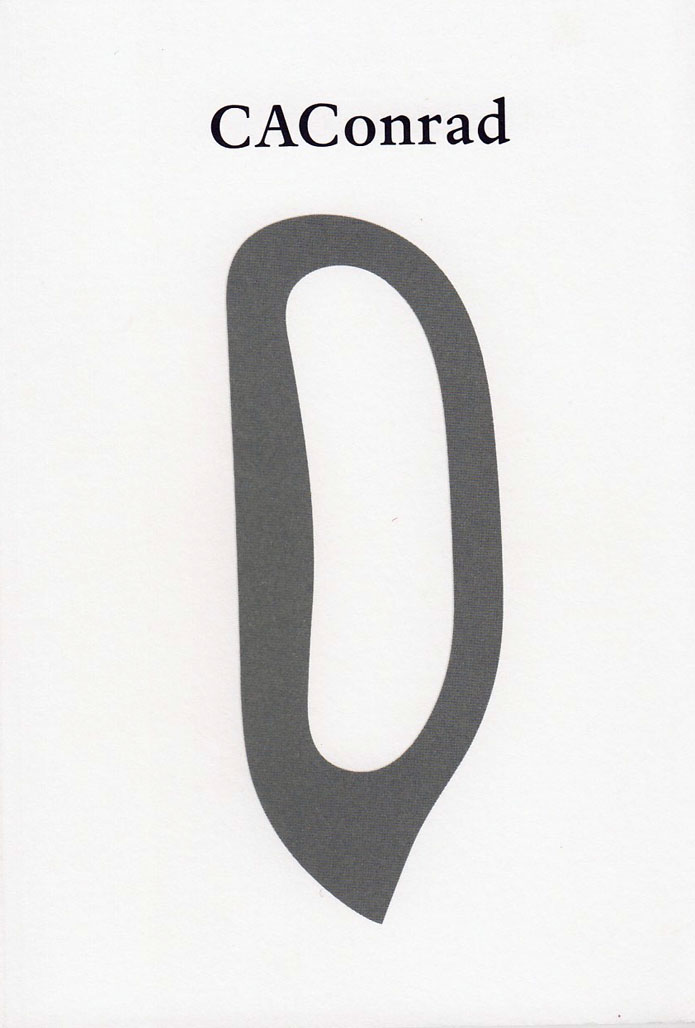
(Soma)tic and resulting poems
A collection of new poems following their (Soma)tics practice.
Fivehundred places was founded in 2012 by Jason Dodge. With a single printing of 500 copies, each book will find itself in one of 500 places. On the cover of each book is a dead scissor by Paul Elliman.

Neotenica
A slippery novel set in the Bay Area of the early aughts, where femininity, race, and class tangle together.
Neotenica is a novel of encounters: casual sex, arranged-marriage dates, cops, rowdy teenagers, lawyers, a Sapphic flirtation, a rival, a child, and two important dogs. At the center of it are Young Ae, a Korean-born ballet dancer turned PhD student, and her husband, a Korean-American male who inhabits an interior femininity, neither transgender nor homosexual, but a strong, visceral femininity nonetheless. This novel is an adrenaline-filled ride sliding across the surface of desire and chance through the quotidian turned playful.